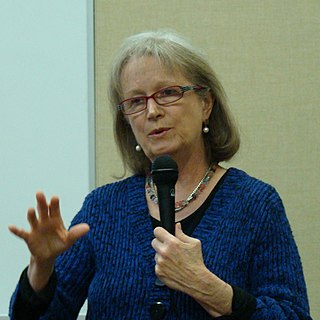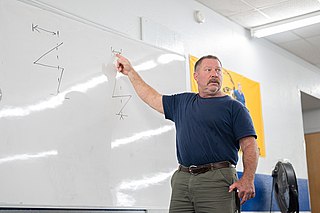A Quote by Andrea Dworkin
Women have been taught that, for us, the earth is flat, and that if we venture out, we will fall off the edge. Some of us have ventured out nevertheless, and so far we have not fallen off. It is my faith, my feminist faith, that we will not.
Related Quotes
True. The one certainty about riding, Braygan, is that - at some time - you will fall off. It is a fact. Another fact you might like to consider, in your life of perpetual terror, is that you will die. We are all going to die, some of us young, some of us old, some of us in our sleep, some of us screaming in agony. We cannot stop it, we can only delay it.
To believe that He will preserve us is, indeed, a means of preservation. God will certainly preserve us, and make a way of escape for us out of the temptation, should we fall. We are to pray for what God has already promised. Our requests are to be regulated by His promises and commands. Faith embraces the promises and so finds relief.
There is no such thing as a faithless person; we either have faith in the power of love, or faith in the power of fear. For faith is an aspect of consciousness. Have faith in love, and fear will lose its power over you. Have faith in forgiveness, and your self-hatred will fall away. Have faith in miracles, and they will come to you.
We have indeed been out in space, but some are under the illusion that we have been off Earth. In reality humans have never been off Earth. We have always been on a piece of Earth in space. We survive only as long as we can breathe the air of Earth, drink its waters, and be nourished by its foods. There is no indication that as humans we will ever live anywhere else in the universe. Place, too, is continuously being transformed but only within its own possibilities.
When on life's journey it becomes our lot to travel with criticism of skeptics, the hate of some, the rejection of others, the impatience of many, or a friend's betrayal, we must be able to pray in such a manner that an abiding faith and a strong testimony that the Lord will be with us to the end, will compel us to say, "Nevertheless, Father, Thy will be done, and with Thy help, in patience I will follow firmly on the path that takes me back to Thee."
Not only the studying and writing of history but also the honoring of it both represent affirmations of a certain defiant faith - a desperate, unreasoning faith, if you will - but faith nevertheless in the endurance of this threatened world - faith in the total essentiality of historical continuity.
The ideal of faith in ourselves is of the greatest help to us. If faith in ourselves had been more extensively taught and practiced, I am sure a very large portion of the evils and miseries that we have would have vanished. Throughout the history of mankind, if any motive power has been more potent than another in the lives of all great men and women, it is that of faith in themselves.
I think present-day reason is an analogue of the flat earth of the medieval period. If you go too far beyond it you're presumed to fall off, into insanity. And people are very much afraid of that. I think this fear of insanity is comparable to the fear people once had of falling off the edge of the world. Or the fear of heretics. There's a very close analogue there.
The Bible never tells us to take a blind leap of faith into the darkness and hope that there's somebody out there. The Bible calls us to jump out of the darkness and into the light. That is not a blind leap. The faith that the New Testament calls us to is a faith rooted and grounded in something that God makes clear is the truth.




































